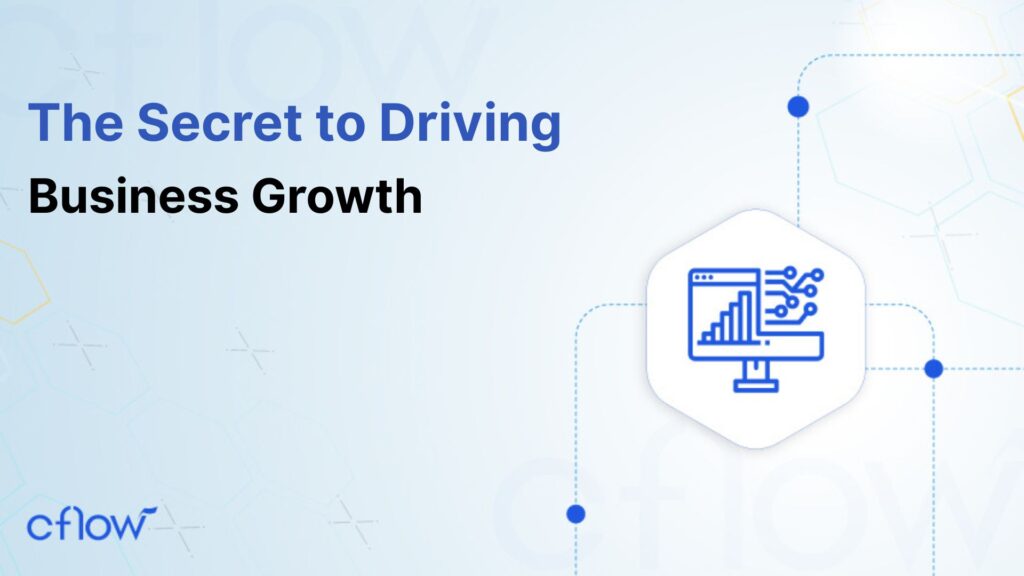Workflow Automation: The Secret to Driving Business Growth

As businesses grow, so do the complexities of daily operations. What once felt manageable suddenly becomes overwhelming. Processes get messy, repetitive tasks pile up, and inefficiencies begin to slow momentum. Teams spend more time fixing bottlenecks than driving innovation, and scaling starts to feel like an uphill battle.
With KIVA AI SEO Agent by Wellows, an autonomous marketing platform built for efficiency, repetitive tasks become structured and scalable. The result is reduced friction, less stress, and sustainable growth without overloading teams.
In this article, we’ll explore why automation is becoming essential for business growth – and how it enables companies to scale smarter, not harder.
Table of Contents
What is Workflow Automation?
Workflow automation is the use of technology to design and run processes that would otherwise require manual effort. It ensures tasks move forward automatically, guided by rules and triggers. To dive deeper, check out this detailed guide to workflow automation.
This eliminates manual bottlenecks, reduces errors, and ensures consistent operations. Teams no longer waste time chasing approvals or repeating routine tasks.
Unlike basic task automation, which handles a single action like sending an email, workflow automation connects multiple steps into one smooth process.
For example, with KIVA, an SEO content workflow can conduct keyword research, create drafts for approval, publish articles, and monitor content scoring – streamlining the entire process without requiring constant manual oversight.
Why Scaling Without Stress is Impossible Without Automation
Manual workflows come with hidden costs – human error, wasted time, and mounting inefficiencies. When teams spend hours on repetitive tasks, energy that should fuel growth is drained away.
As businesses expand, these problems multiply. More clients, employees, and processes mean more approvals, follow-ups, and handoffs. Without systems in place, stress grows faster than the business itself.
In fact, companies that automate their workflows experience a 20–30% reduction in operational costs – a clear signal that automation not only reduces stress but also delivers measurable financial benefits.
Imagine a growing team managing dozens of repetitive approvals every week. What once took minutes now consumes hours, leading to frustration and burnout. Automation breaks this cycle, freeing teams to focus on high-value work.
Key Benefits of Workflow Automation for Businesses
Workflow automation isn’t just about saving time; it transforms the way businesses operate. Here are the key benefits that make it a powerful driver of efficiency and growth:
Efficiency & Productivity – Automation frees teams from repetitive tasks, giving them more time to focus on strategy, creativity, and growth initiatives that actually move the needle.
Consistency & Accuracy – By standardizing processes, automation reduces human error and ensures compliance. Every task follows the same reliable steps, minimizing costly mistakes.
Scalability – As demand grows, automation allows businesses to handle higher volumes without additional stress or resources. Scaling becomes smoother and more sustainable.
Collaboration & Transparency – With workflows mapped and automated, everyone knows their responsibilities. This eliminates bottlenecks, improves accountability, and keeps projects moving forward.
Choosing the Right Workflow Automation Platform
The right automation tool should be easy to use so teams can adopt it quickly without steep learning curves. A clean interface and simple setup make all the difference.
Look for strong integrations with your existing systems – CRM, project management, or SEO tools – so workflows run seamlessly across platforms. AI Agents like KIVA are built to connect with marketing and SEO ecosystems, making automation smoother for growth-focused teams.
Customization is also key. Every business has unique processes, and the tool should adapt to your needs rather than forcing you into rigid structures.
Finally, ensure it can scale with your business. A tool that works for 10 employees should still be powerful enough to handle 100 as you grow – and this scalability is exactly where KIVA shines.
End-to-end workflow automation
Build fully-customizable, no code process workflows in a jiffy.
Common Mistakes to Avoid in Workflow Automation
While workflow automation can transform efficiency, it’s easy to make missteps that reduce its impact. Avoid these common mistakes to ensure your automation strategy truly delivers value:
Automating Broken Processes – If a process is inefficient, automating it will only speed up the inefficiency. Always refine workflows before putting automation in place.
Overcomplicating Workflows – Adding too many steps or rules can make automation confusing and harder to manage. Keep it simple and focused on solving real problems.
Not Involving the Team – Employees who use the workflows daily should have input in their design. Ignoring them leads to resistance, errors, and low adoption.
The Future of Workflow Automation
The future of workflow automation lies in AI-driven systems that go beyond rule-based tasks. Predictive workflows will anticipate needs and resolve issues before they slow teams down.
This marks a shift from reactive task management to proactive business orchestration. Instead of waiting for problems, automation will guide processes toward the most efficient outcomes.
With these advancements, even small businesses can compete at an enterprise level. Smart automation levels the playing field, giving growing teams access to speed, efficiency, and scalability once reserved for large organizations. If you’re a growing company, here’s a helpful resource on how to automate a small business effectively.
Conclusion
Workflow automation is more than a time-saver – it’s the foundation for scaling without stress. By removing inefficiencies, businesses unlock growth without burning out their teams.
It empowers organizations to work smarter, not harder, ensuring every process runs with consistency and accuracy. Instead of being held back by repetitive tasks, teams can focus on innovation, strategy, and building stronger customer relationships.
The future of growth belongs to businesses that embrace automation. Start simplifying your workflows today, and you’ll create the clarity, speed, and resilience needed to scale with confidence.
FAQs
1. What is workflow automation in simple terms?
Workflow automation uses technology to complete repetitive tasks and processes automatically, reducing manual work and saving time.
2. How is workflow automation different from task automation?
Task automation handles a single action, like sending an email. Workflow automation connects multiple tasks into a structured process, such as onboarding an employee.
3. Why is workflow automation important for scaling businesses?
It reduces errors, eliminates bottlenecks, and ensures processes run smoothly, allowing businesses to grow without overloading their teams.
4. How does AI enhance workflow automation?
AI enables predictive workflows that anticipate needs, suggest improvements, and optimize processes beyond simple rule-based actions.
What should you do next?
Thanks for reading till the end. Here are 3 ways we can help you automate your business:

Do better workflow automation with Cflow
Create workflows with multiple steps, parallel reviewals. auto approvals, public forms, etc. to save time and cost.

Talk to a workflow expert
Get a 30-min. free consultation with our Workflow expert to optimize your daily tasks.

Get smarter with our workflow resources
Explore our workflow automation blogs, ebooks, and other resources to master workflow automation.
Get Your Workflows Automated for Free!


